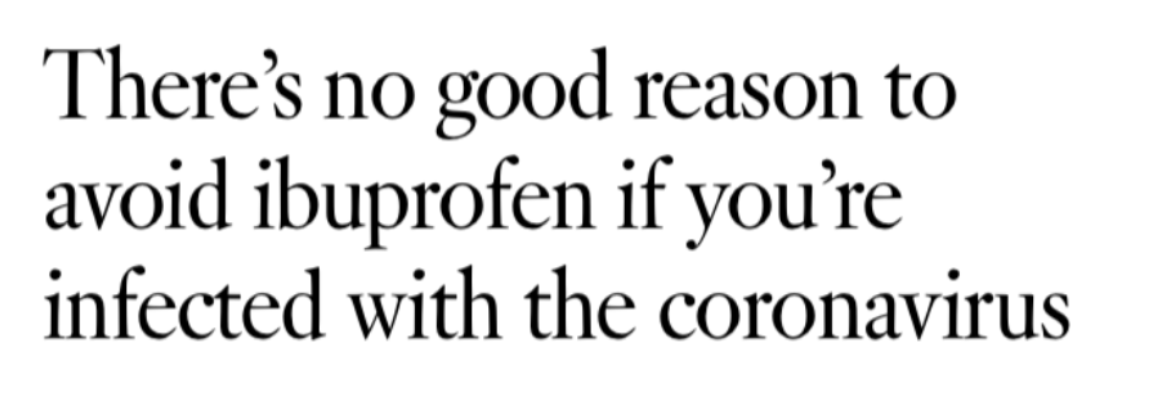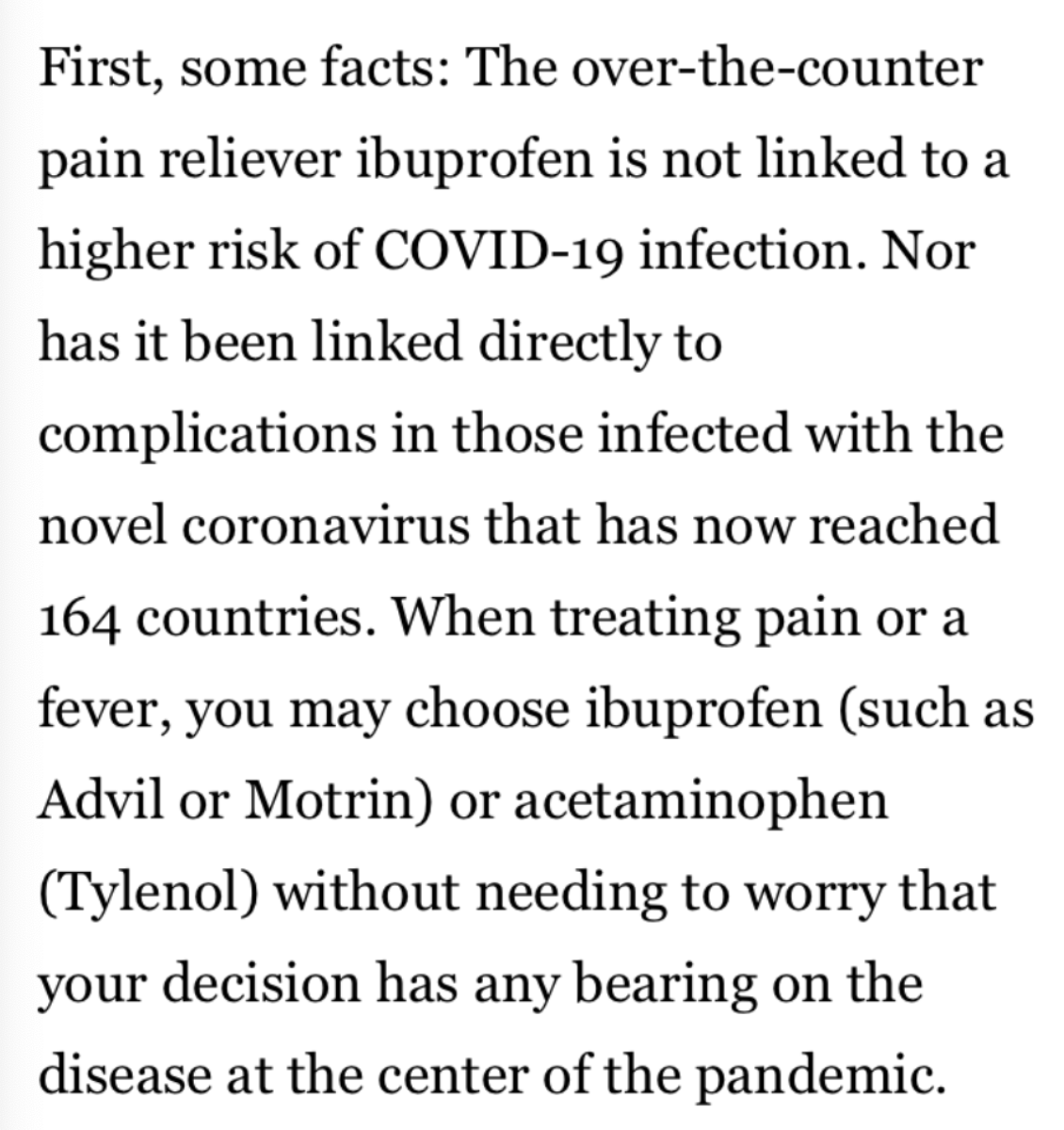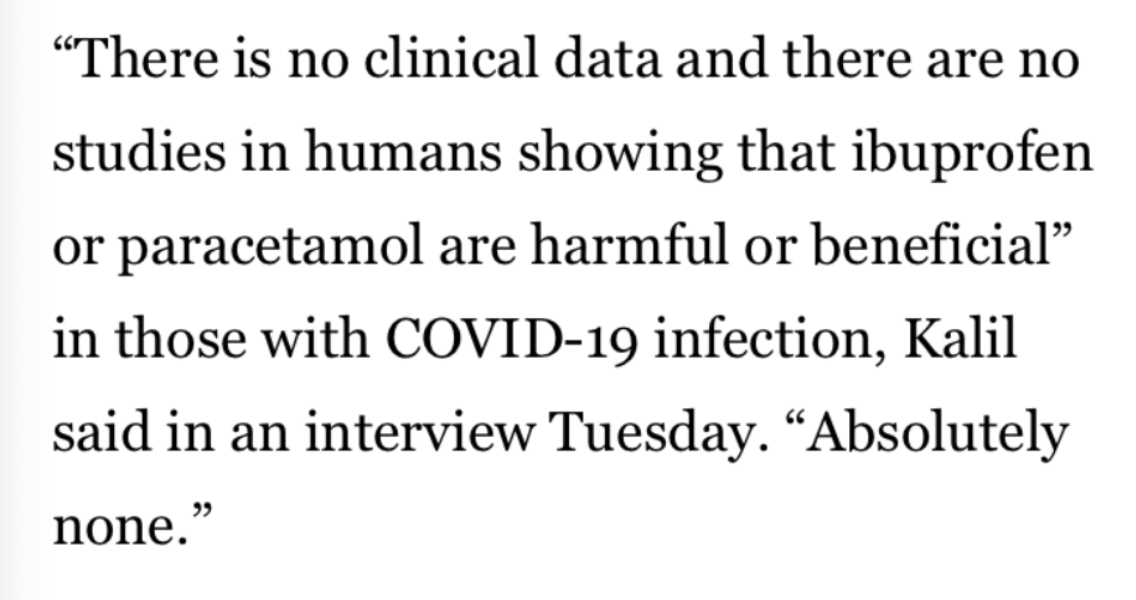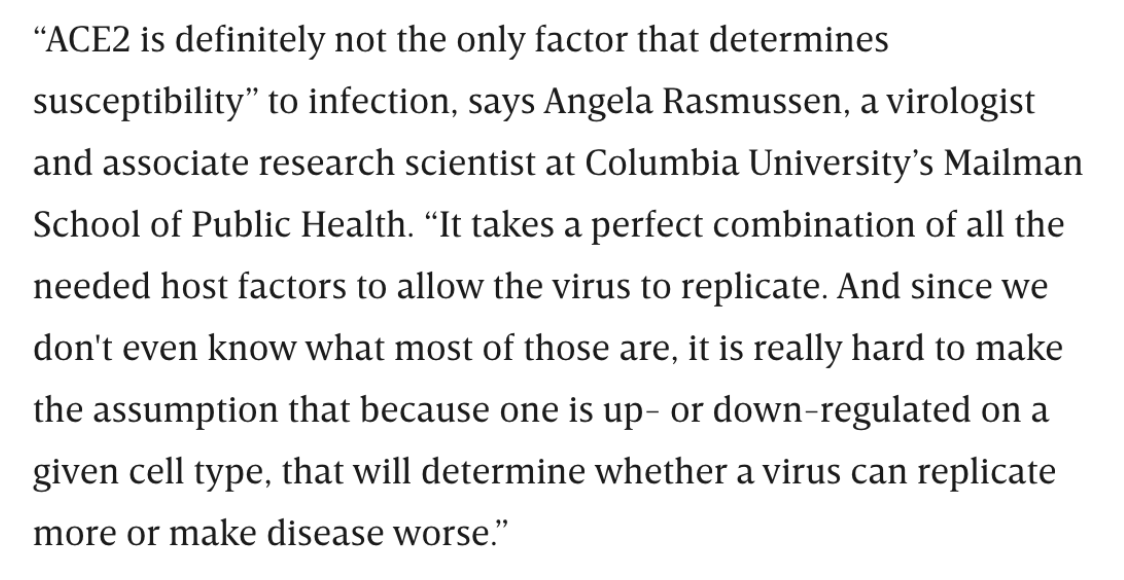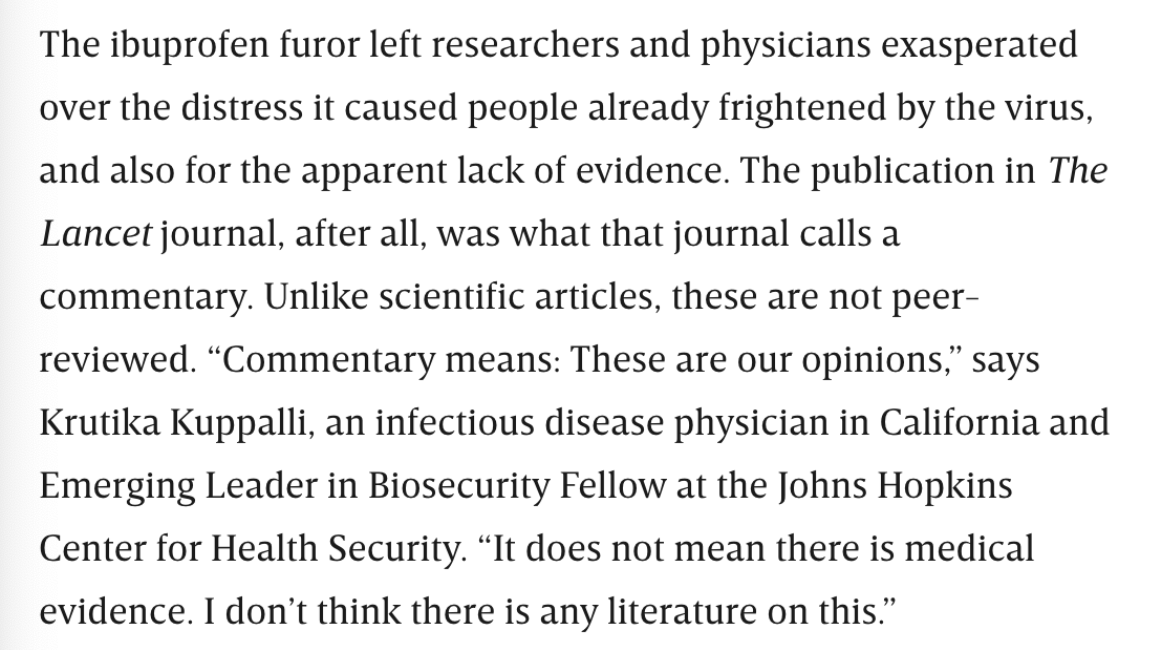We& #39;ve recently seen journalists and experts make recommendations based on the weird “no evidence” construction, only to later find out they were wrong.
It feels like the same type of reasoning is behind expert recommendations that ibuprofen is ok to use for coronavirus.
(1/16)
It feels like the same type of reasoning is behind expert recommendations that ibuprofen is ok to use for coronavirus.
(1/16)
Let me preface this by saying ibuprofen is *probably* safe for coronavirus.
But even though Ibuprofen is probably safe, the expert+journalist recommendation to use it is based on a weird type of reasoning that often seems to contrast with Bayesian Decision Theory and its natural ally, common sense.
First some background, a commentary in the Lancet last month identified three generally accepted facts:
1. SARS-CoV-2 binds via the ACE2 enzyme
2. People with high ACE2 have severe symptoms
3. Ibuprofen increases ACE2 https://www.thelancet.com/journals/lanres/article/PIIS2213-2600(20)30116-8/fulltext">https://www.thelancet.com/journals/...
1. SARS-CoV-2 binds via the ACE2 enzyme
2. People with high ACE2 have severe symptoms
3. Ibuprofen increases ACE2 https://www.thelancet.com/journals/lanres/article/PIIS2213-2600(20)30116-8/fulltext">https://www.thelancet.com/journals/...
Based on this, the commentary recommended that people prone to high ACE2 should not take ACE2-stimulating drugs like ibuprofen.
I would go further and say that if I personally get coronavirus, I will make the totally rational decision to avoid ibuprofen.
I know that the evidence isn’t great. But if there’s say, a 10% chance that ibuprofen makes the severity 50% worse, it’s an obvious decision. And honestly not that hard.
The expert + journalist consensus is the opposite. Here’s the lede of a well-meaning L.A. times article.
https://www.latimes.com/science/story/2020-03-18/theres-no-good-reason-to-avoid-ibuprofen-if-you-are-infected-with-the-coronavirus">https://www.latimes.com/science/s...
https://www.latimes.com/science/story/2020-03-18/theres-no-good-reason-to-avoid-ibuprofen-if-you-are-infected-with-the-coronavirus">https://www.latimes.com/science/s...
The article quotes some experts coming down hard with the “there’s no evidence” construction.
“No evidence” is such a weird things to say here. There’s a plausible mechanism! The only reason there’s no evidence is that we haven’t had time to run the studies.
“No evidence” is such a weird things to say here. There’s a plausible mechanism! The only reason there’s no evidence is that we haven’t had time to run the studies.
Here’s a seemingly nuanced article in Wired coming to the same conclusions. But if you look at the reasoning, none of it should convince you to take Ibuprofen. https://www.wired.com/story/the-ibuprofen-debate-reveals-the-danger-of-covid-19-rumors/">https://www.wired.com/story/the...
“Tylenol can be toxic”
Totally. But Tylenol’s toxicity is reasonably bounded and well-understood. There’s much more tail risk when it comes to Ibuprofen and coronavirus, and therefore a worse expected value.
Totally. But Tylenol’s toxicity is reasonably bounded and well-understood. There’s much more tail risk when it comes to Ibuprofen and coronavirus, and therefore a worse expected value.
“Other factors influence coronavirus”
Sure, but ACE2 is certainly one of the factors, so why not address it?
Sure, but ACE2 is certainly one of the factors, so why not address it?
“It’s jut a Commentary in the Lancet, not a peer-reviewed article”.
Of course it’s not strong evidence. But it’s good enough to make me think there’s a 10% chance ibuprofen will increase illness severity by >50%.
Of course it’s not strong evidence. But it’s good enough to make me think there’s a 10% chance ibuprofen will increase illness severity by >50%.
I could go on. Both articles make a lot of other weird and sometimes self-contradictory claims.
But my conclusions are:
1. P-value thinking gets in the way of cost-benefit thinking and common sense
2. Some of these experts are doing cost-benefit thinking, but I’m not (yet) persuaded by it.
1. P-value thinking gets in the way of cost-benefit thinking and common sense
2. Some of these experts are doing cost-benefit thinking, but I’m not (yet) persuaded by it.
3. Journalists should be a bit more skeptical of expert pronouncements.
Not too skeptical. Expert authorities are very valuable and keep us from all using crystals or whatever.
But journalists should be a little more skeptical than they are, and ask common sense questions.
Not too skeptical. Expert authorities are very valuable and keep us from all using crystals or whatever.
But journalists should be a little more skeptical than they are, and ask common sense questions.

 Read on Twitter
Read on Twitter